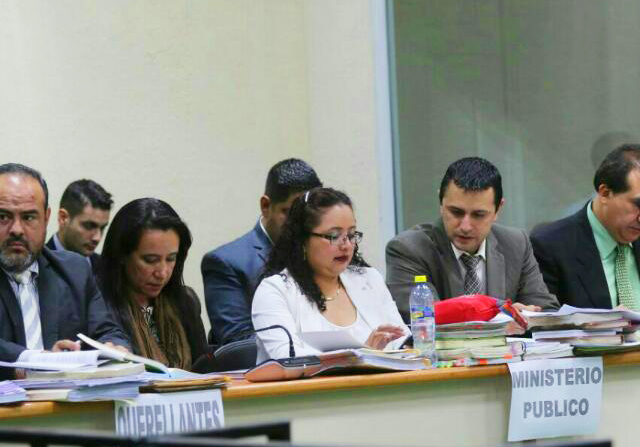This article was published more than 8 years ago.

“[They] did not help them. . . they stood still.”
When staff members of the Hogar Seguro Virgen de la Asunción orphanage were supposed to rapidly evacuate the children, they instead “stood still,” according to a 16-year-old former resident.
On March 8th, 41 girls died in a fire that engulfed the state-operated orphanage of Hogar Seguro Virgen de la Asunción in Guatemala City. The blaze began when mattresses were set on fire by children who had been locked up in a classroom; they had started the fire to protest their abuse and poor conditions. However, when the fire erupted uncontrollably, the children were trapped, and left to die by security guards and staff members.
A long history of abuse and corruption
The orphanage had once fulfilled a critical need, housing minors aged 13-17 who were victims of physical, psychological and sexual violence, abandoned, or trafficked. However, for years, the orphanage was criticized for mismanagement and horrific treatment of the children who lived there. Originally built for 400 children, the facility housed an estimate of 750 children before the fire. Moreover, the staff sexually assaulted and abused the children, prompting criminal cases and complaints by human rights groups. A month before the fire, the Guatemalan Human Rights Commission even asked for the facility to be shut down.
The Office of the Attorney General in Guatemala arrested five individuals believed to have been responsible for the death of the girls. However, many staff members and police officers who were at the facility during the incident remain free, and families of the victims are demanding an investigation of the police who failed to investigate crimes before the incident.
The fire—and the lack of justice for the victims—is part of a much larger picture of impunity and corruption in Guatemala, especially for children and women. According to the International Commission against Impunity in Guatemala (CICIG), 88% of crimes against minors go unpunished. Further, the country has demonstrated a capacity to protect individuals in power who have committed human rights abuses.
Justice for the 41
Overcoming this impunity takes extraordinary courage and determination—particularly in large-scale cases like Hogar Seguro Virgen de la Asunción. However, local groups Grupo de Apoyo Mutuo (GAM) and Asociacion Mujeres Transformando el Mundo (MTM) are demonstrating that resistance can lead to justice.
Before the fire, MTM had been investigating the orphanage and even presented legal action to shut down the facility for its abuse of residents. Immediately after the fire, MTM filed a habeas corpus demanding all girls be transferred out of the shelter and that Hogar Seguro be permanently shut down. Despite government pushback, MTM’s legal pressure is working: only a few girls remain at the shelter, which is ordered to be permanently phased out.
The next step to obtaining justice is holding the perpetrators responsible to account. After making their case to a judge, MTM has been declared a plaintiff in the case, as well as the 41 families of the victims. At the time of writing, two ex-officials are due to face charges for the deaths of the victims: Carlos Rodas, secretary of the Social Welfare agency, and Anahi Keller, deputy secretary of the Social Welfare agency. The former home director of the orphanage, Santos Torres, will also be tried.
Concern for the case’s legitimacy and next steps
While the arrests and trials appear promising, both MTM and GAM have expressed dire concerns over the state’s handling of the case. Guatemala’s Attorney General’s Office (known as the PGN) is acting as a joint plaintiff in the case—an absurdity, since the PGN is also one of the actors being accused by the plaintiffs. Not surprisingly, MTM and GAM report that the PGN has filed minimal charges, and that the evidence they are collecting is weak.
Despite setbacks by the PGN, MTM has a sharp vision for moving forward. The group has filed torture charges on behalf of the orphanage’s residents which date before the fire, and plans to work with the survivors of the fire to articulate their experience and go before the court. Moreover, MTM is developing a strategy to deconstruct the stigma that the residents of the orphanage face. This prejudice, they believe, is one of the factors causing the public to be disinterested in the case.
The Fund for Global Human Rights works closely with both MTM and GAM, and has partnered with the organizations to continue the fight against governmental impunity and the protection of women and children in Guatemala.


